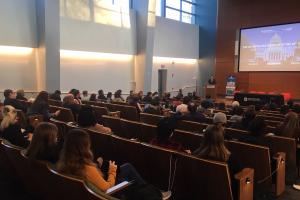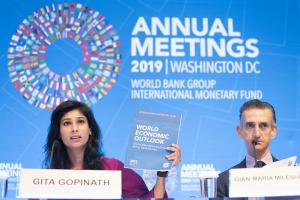Pulse
Commercializing Breakthrough Drugs In a Value-Based Market
Co-authored with John Kerins, Director in Cain Brother’s Corporate M&A Advisory practice.
Key Takeaways:
What just Happened in Iran?
1.The Islamic Republic of Iran (IRI) is faced with unprecedented anti-government demonstrations. Whether there was foreign intervention (there might have been), the scale of the riots and the depth of popular anger has been unprecedented, especially come from the “deplorables”. The regime reacted with extreme brutality. However, it has been forced to acknowledge the killings, especially at the city of Mahshahr—even Parliament is reacting, with talk of a special commission of inquiry
Hale Report: Podcast Episode 7 - Interview with Michele Wucker
Today's podcast guest is a fellow Chicagoan, best-selling author Michele Wucker. Her thought-provoking book, the Gray Rhino, was published in 2016 and has been quoted by President Xi Jinping of China. Michele’s key insight is that even when we see the future charging at us, we often fail to act.
To listen to the full podcast, please click here.
The Economic Consequences of War - EconVue Spotlight
In 1919 John Maynard Keynes wrote the first best-seller in economics, The Economic Consequences of the Peace. The title is a bit misleading, since it is really about the cost of war. He railed against the Treaty of Versailles, correctly predicting that inequitable conditions of peace made another world war inevitable.
Japan Matters to America, America Matters to Japan
Written By Eleanor Shiori Hughes - November 14, 2019
Report Card on the Health of the World Economy: EconVue Spotlight
Our subject is health - both the health of the global economy, and the health of its global citizens. Each is dependent on the other, especially in a world where healthcare expenditures continue to rise. According to the World Bank, they average ten percent of GDP and are nearly double that in the US.
The Butterfly Effect - EconVue Mexico Report
Chicago and Mexico are inextricably intertwined on multiple levels. The Midwest has structural similarities to the Mexican economy, especially in terms of the dominance of its manufacturing sector. Chicago has the largest Mexican-American population in the country outside of Los Angeles, more than three quarters of a million people. We even share a connection in the natural world. This is the season when a kaleidoscope of Monarch butterflies swarm through Chicago, on their way to spend the winter in Mexico.
Hale Report: Podcast Episode 6 The Coming Customer Revolution in Health Care with David W. Johnson
Episode 06_20191001_David Johnson.mp3
Hale Report: Podcast Episode 5 with Kathryn Ibata-Arens on Technonationalism
EconVue interviews Kathryn Ibata-Arens, Vincent de Paul Professor of Political Science & Director of the Global Asian Studies Program at DePaul University. Her new book has just been published by Stanford Press: Beyond Technonationalism, Biomedical Innovation and Entrepreneurship in Asia.


 by
by 
 by
by 
 by
by 






